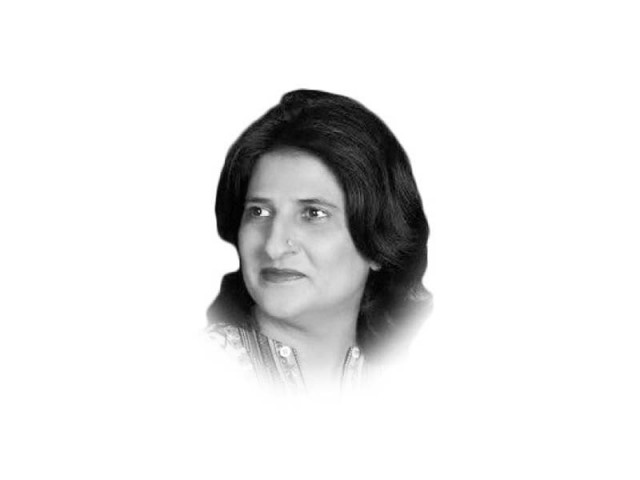Pak-US ties and myth of independence
The US-Pakistan relations have always been an epic of Love and Hate, Demand and Supply, and being used and abuse

In any event, whether the United States is or is not capable of imposing its conditions, there should be no doubt that Pakistan will hold its ground, reject all obnoxious conditions, and resolutely resist foreign interference.’
These words are from Zulfikar Ali Bhutto’s famous book, The Myth of Independence, written in November 1967. Viewed in the context of President Joe Biden’s recent objectionable comments about Pakistan’s nuclear programme, one must praise Bhutto’s vision as reflected in the above quote, and acknowledge that the situation is as true as today.
Bhutto further writes in this book that the one-dimensional approach to diplomacy is wrong; and although it is a natural tendency of people to think in terms of their own situation, the global situation defies this limited approach. According to Bhutto, international developments had already become so complex and interconnected in 1967 that no important decision tolls the bell for one people alone, and the actions of all nations, particularly of the Great Powers, are influenced by a multitude of considerations covering a vast field. Since the independence, Pakistan’s foreign relations have evolved in stages — partly influenced by changing conditions and partly by sentiment and subjective judgments which invariably influence the thoughts of new nations.
The US-Pakistan relations have always been an epic of Love and Hate, Demand and Supply, and being used and abused. The circumstances gave several opportunities to Islamabad to realign its relations with Washington, but every time we ended up weighing relations with US currency, educational opportunities of children of our civil and military bureaucracy in the western world, and our post-retirement living in Europe, North America or the gulf states.
In January 2022, a report submitted to the Supreme Court of Pakistan indicated that more than 22,000 officers serving at key posts in various public departments are dual national. As many as 11,000 officers belong to police and civil and military bureaucracy, with a majority holding dual nationality in Canada, Britain, America, Australia, New Zealand, Malaysia, Ireland, etc. You can hardly find any politician or civil and military bureaucrat who decided to spend their retirement age in Russia or China. You can cite language as the problem, but language is also a problem in France and Germany. Today’s youth of China and Russia understands English as much as any German or French can understand. The matter is not the language but the desire of living in First Class country as our elite always wish to travel in First Class compartments, use first-class vehicles, live in first-class gated communities, and live a first-class lifestyle.
This love for the First World sends a wrong message to the western world that every powerful Pakistani prefers a relationship with the US-led West even if the US grinds Pakistan over strategic issues. R Berridge and Alan James in the preface of A Dictionary of Diplomacy indicate that peaceful contacts between independent groups have, since the start of human time, required the kind of representational activity which has come to be known as diplomacy and it has very sensitive nature of the representational task. We know that ever since man left his caves to seek more promising conditions of life, he has been in conflict with his fellows so we understand conflict and conflict resolution are two conditions we have to deal with everywhere and every time, and peaceful contact is the key to survival. Peaceful contact does not mean accepting hegemony and subjugation of powerful groups but it is an art of survival with honour and grace in the middle of a critical phase of the conflict.
Unfortunate to say that the US-Pakistan relationship has always been a “conflict but with a readymade conflict resolution” and this readymade conflict resolution is giving an advantage of “error of judgment” to the US whenever some harsh statement or action comes from Washington.
I believe we can tailor some other option for responding to Washington if we try to opt for Moscow or Beijing as our post-retirement residing places.
















COMMENTS
Comments are moderated and generally will be posted if they are on-topic and not abusive.
For more information, please see our Comments FAQ